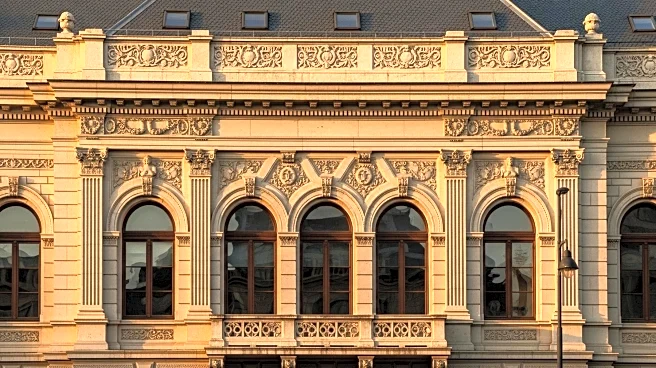What's Happening?
Sundeep Oberoi, the owner of a medical office complex in Elgin, has received approval from the Elgin Planning and Zoning Commission to convert three of the four buildings into apartment units. The complex, located at 860 Summit St., has seen a decline in demand for medical office space, with an 80% vacancy rate. Oberoi plans to create 34 apartment units, including studio, one-bedroom, and two-bedroom options, across three buildings. The conversion requires city approval for code variances, including exceptions for first-floor apartments and side yard amenities. The proposal will now proceed to the Elgin City Council for final approval.
Why It's Important?
The conversion of the medical office complex into residential units reflects broader trends in real estate, where adaptive reuse of commercial properties is becoming more common due to changing market demands. This development could provide much-needed housing in Elgin, potentially boosting local economic activity and revitalizing the area. The project also highlights the challenges faced by medical office spaces in maintaining occupancy, as fewer doctors are starting independent practices. The approval of this conversion could set a precedent for similar projects in the region, impacting local zoning and development policies.
What's Next?
The proposal will be presented to the Elgin City Council for final approval. If granted, the project will move forward, potentially leading to increased residential occupancy and economic activity in the area. Local businesses may benefit from the influx of new residents, while the city may need to address infrastructure and community service needs associated with increased population density. Stakeholders, including local residents and businesses, may express concerns or support during the council's decision-making process.
Beyond the Headlines
The conversion of commercial spaces to residential units raises questions about urban planning and the balance between commercial and residential needs. It also touches on the sustainability of medical practices and the evolving nature of healthcare delivery. The project could influence future zoning decisions and encourage other property owners to consider adaptive reuse as a viable option for underutilized spaces.











